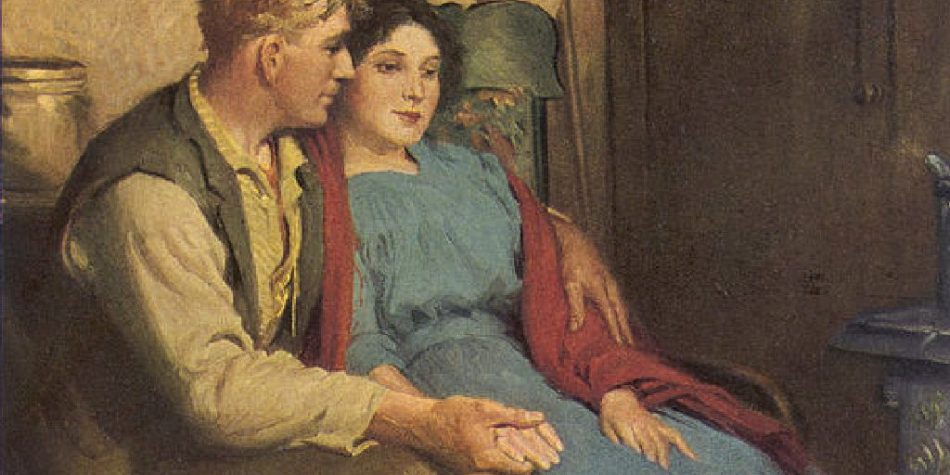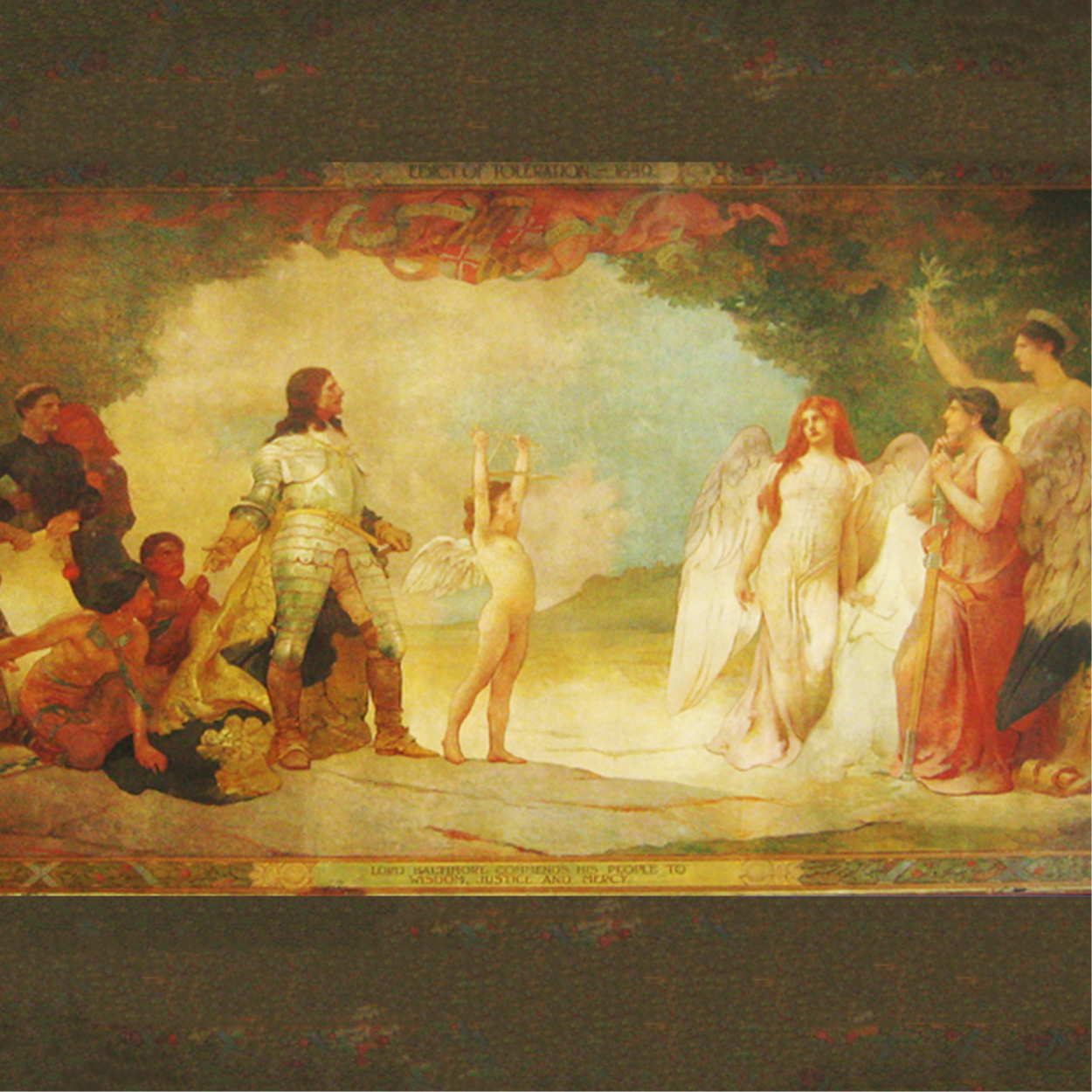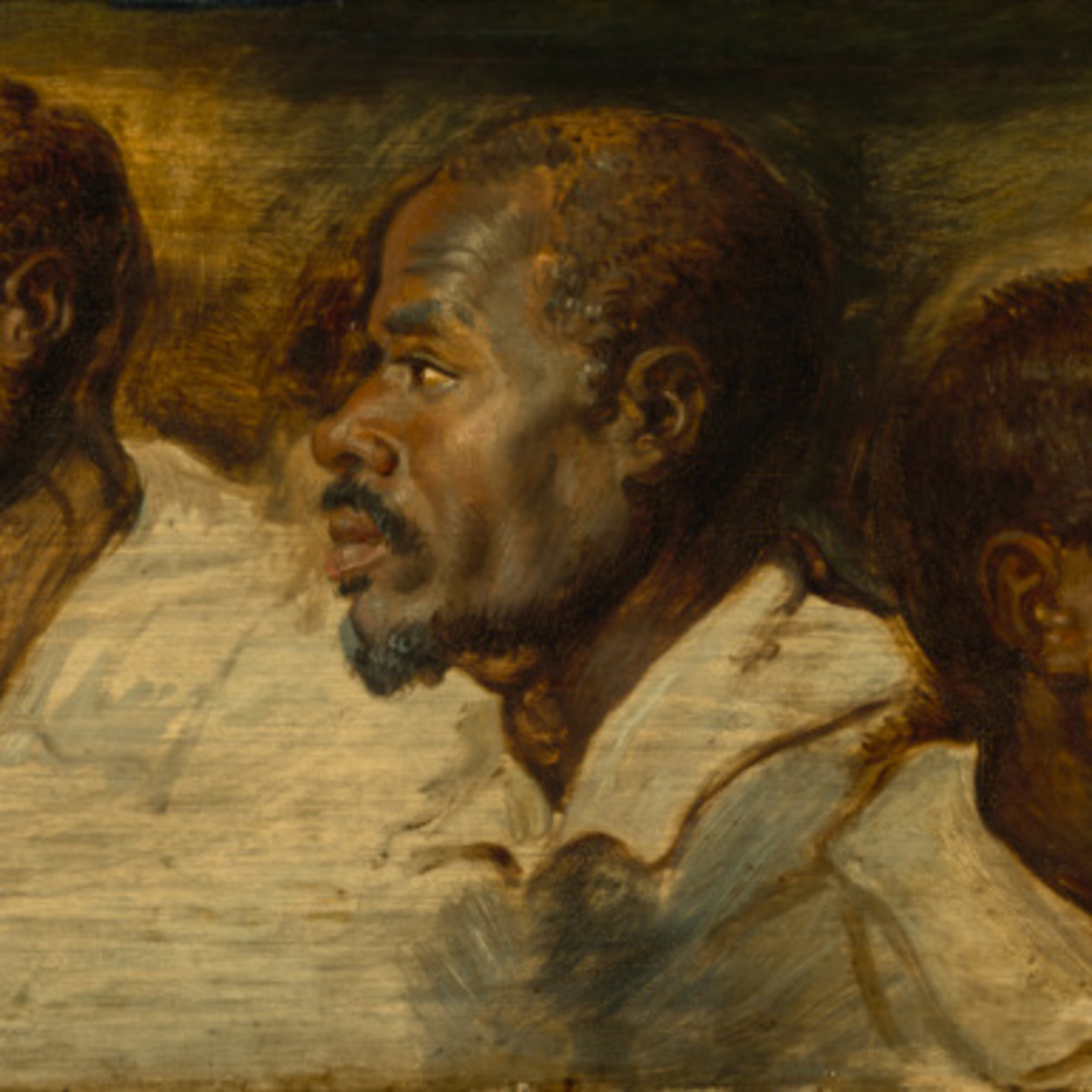I am sometimes asked by Latter-day Saints and others how to “balance” a faithful commitment to truths about marriage and sexual morality with love for LGBT+ persons. In one sense, the question is reasonable. It springs from the laudable desire to affirm persons who “identify” as LGBT+. Such persons, as all persons, are made in the image and likeness of God, and they deserve love and friendship.
But in another sense, the idea that there is a “balancing” that needs to be done is misguided—very fundamentally so. It would make sense if one bought into LGBT+ identitarianism, but that, it seems to me, is a mistake. The LGBT+ movement presupposes that a certain “sexual orientation” or “gender identity” is central to who one is. It insists that the “I” or “me” demanding and deserving affirmation and love is the “I” or “me” whose essence is constituted in an important way by a certain sexual orientation or gender identity. As we often hear, “If you do not affirm me as, say, lesbian, transgender, etc., you are not affirming (and not loving) me.” We should never pretend to approve what we do not, in truth, approve of; or demand that others approve of what they do not approve of.
So where does that leave the faithful Latter-day Saint (or Catholic, or Evangelical Christian, or Orthodox Jew or Muslim) who wants to be kind, affirming, loving—as we certainly should be? It leaves that person caught between acknowledging as somehow authoritative and binding these “unloving” (or, in any case, hard to see or understand as in any way loving) revealed moral strictures, and the desire to be kind, affirming, and loving. One will, as I’ve already noted, read the strictures as narrowly as possible and feel the psychological compulsion to at least hope for their “repeal.” And, of course, one will be desperately trying to balance—I say desperately because one will not really be able to affirm the revelation in its fullness and on its own terms. (This is perhaps my most important point.) One will not genuinely see the good in the strictures; all they do, one will deep down suppose, is impede people from “fully being themselves.” That’s precisely what the LGBT+ movement, as a movement, says, and I don’t see how anyone who embraces its underlying presuppositions—the understanding of identity, the philosophical anthropology, that I briefly outlined a moment ago—can say the movement is wrong on that point. He who says A, says B. There is a relentlessness to the logic. If you are Latter-day Saint (or Catholic, etc.) and you find yourself feeling as though you have to, essentially, apologize for your Church’s teachings on sex and marriage or interpret them as narrowly as possible (or avoid discussing them whenever possible), I can tell you right now that you’ve bought into a set of other premises that are, in the end, incompatible with those teachings.
My own view is that “sexual orientation” (understood as a particular ordering of sexual desire, personal identity, and human fulfillment) is an artifact of 19th-century psychology. It would have baffled people of earlier times, not just those whose morality condemned homosexual activity, but also those who lived in societies in which homoeroticism was widely accepted and even treated as normal (at least for men). The late Kenneth Dover’s book, Greek Homosexuality, and the work of the Berkeley classicist David Cohen on the regulation of sexuality in Greek antiquity are illuminating here. It’s not that people in earlier times and places had “sexual orientations” but just didn’t know they did or didn’t have a label for it. It’s that “sexual orientation” is indeed a modern concept/construct—one that is slippery and ambiguous (on this, see Michael Hannon’s 2014 First Things article, “Against Heterosexuality“).
The concept/construct of sexual orientation is supposed to do a particular sort of work in contemporary debates about marriage and sexual morality. You’re supposed to believe that everyone has one and that some people have one that naturally orients them to romantic-sexual interest and attraction to persons of the same sex, and those same-sex relationships thus offer them wholeness and fulfillment. The step from there to the rejection of traditional norms against homosexual acts and the affirmation of same-sex sexual partnerships, even their status as marriages, is extremely short. It becomes a simple matter of kindness … compassion … decency … equality … treating like cases alike. After all, only a bigot (or someone who is abjectly ignorant or horribly cruel) could deny people their natural fulfillment.
Of course, one can and should acknowledge that people experience the attractions they experience—and people experience all sorts of romantic and sexual attractions, including same-sex attraction. And people should treat each other decently and compassionately. But people also need to be honest with one another. No one should pressure someone to accept what he or she doesn’t in fact believe or believe to be right. When people disagree, including about important moral questions, they should exchange reasons and offer each other arguments—but not manipulate each other (or call each other names or treat each other with disrespect). We should never pretend to approve what we do not, in truth, approve of; or demand that others approve of what they do not approve of. We need to be honest with each other.
In my experience, deep friendship can not only survive deep disagreement but can flourish despite it. I think part of the reason I personally have been able to enjoy deep bonds of friendship with people who live in ways I do not think are right, and who know that I think what I think (since my views are very public and I don’t hide them), is that they know where they stand with me. They know that I love them and that I am happy to be friends with them, even though we have deep disagreements, even about things they think are central to their identities. Of course, not everyone feels that way—some people demand approval of their self-conception and way of life as the price of friendship—but you’d be surprised at how many people do. In my experience, deep friendship can not only survive deep disagreement but can flourish despite it.
Thankfully, there are many books and writings that can help Latter-day Saints and others deepen their understanding of these issues. On the dominance of expressive individualism and how we might confront it constructively and critique it effectively, there are the classic writings of Robert Bellah himself (who coined the phrase), Christopher Lasch, Alasdair MacIntyre, and others. There are also two good recent books, Carl Trueman’s The Rise and Triumph of the Modern Self and Carter Snead’s What It Means to Be Human. On marriage and sexual morality, perhaps a place to begin is with my book (with Sherif Girgis and Ryan T. Anderson) What Is Marriage? Man and Woman: A Defense. For some deeper philosophical exploration of key issues in the area, there are two books I’ve written with Patrick Lee, both published by Cambridge University Press: Body-Self Dualism in Contemporary Ethics and Politics (2008), and Conjugal Union: What Marriage Is and Why It Matters (2012). I also highly recommend Ryan Anderson’s book When Harry Became Sally or some of his other writings on “gender identity” (and gender ideology more generally). Ryan sets a great example of how to engage on sensitive issues with dignity and compassion, while never compromising on truth.
I have been greatly honored that some Latter-day Saint leaders and members have taken an interest in my own work on marriage and sexual morality. Why would they do that? If it has any value at all, it is as an effort to better understand and, thus, to more fully appreciate the way in which marriage—rightly understood—and sexual morality—soundly conceived—serve integral human well-being and fulfillment and are rationally defensible as such. My work is, of course, imperfect. I’m sure I don’t have the entire story and I certainly don’t have the entire story exactly right.
I’m participating in an effort that crosses the centuries and involves a long train of thinkers trying to learn from each other and sometimes correcting each other. But the tradition, I would respectfully submit, has achievements and carries some important wisdom. And there are modern and contemporary thinkers (from Elizabeth Anscombe and John Finnis to young scholars today like Sherif Girgis and Melissa Moschella) who are valuably contributing to it—in no small measure provoked by the challenges of the sexual revolution and the ideologies it has generated. Their work is very much worth drawing on, especially inasmuch as it contests presuppositions of those ideologies that richly deserve to be contested, and which must be challenged if teaching such as that set forth in the Proclamation (and in the Bible and the teachings of the biblically-based and Abrahamic faiths) is to be truly affirmed and integrated into our lives as people of faith.
Editor’s note: Special thanks to Daniel Frost and Daniel Ortner for their work and correspondence to make this essay possible.
















